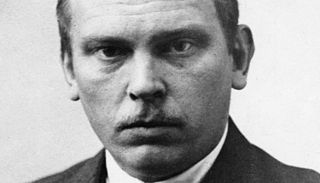Norwegian literature is literature composed in Norway or by Norwegian people. The history of Norwegian literature starts with the pagan Eddaic poems and skaldic verse of the 9th and 10th centuries with poets such as Bragi Boddason and Eyvindr Skáldaspillir. The arrival of Christianity around the year 1000 brought Norway into contact with European medieval learning, hagiography and history writing. Merged with native oral tradition and Icelandic influence, this was to flower into an active period of literature production in the late 12th and early 13th centuries. Major works of that period include Historia Norwegie, Thidreks saga and Konungs skuggsjá.

Olaf II Haraldsson, later known as St. Olaf, was King of Norway from 1015 to 1028. He was posthumously given the title Rex Perpetuus Norvegiae and canonised at Nidaros (Trondheim) by Bishop Grimkell, one year after his death in the Battle of Stiklestad on 29 July 1030. His remains were enshrined in Nidaros Cathedral, built over his burial site. His sainthood encouraged the widespread adoption of the Christian religion among the Vikings / Norsemen in Scandinavia.

The Battle of Svolder was a naval battle fought in September 999 or 1000 in the western Baltic Sea between King Olaf Tryggvason of Norway and an alliance of his enemies. The backdrop of the battle was the unification of Norway into a single state, long-standing Danish efforts to gain control of the country, and the spread of Christianity in Scandinavia.
The Norwegian Academy for Language and Literature, commonly known as the Norwegian Academy, is a Norwegian learned body on matters pertaining to the modern Norwegian language in its Dano-Norwegian variety, now commonly known as Riksmål and Bokmål. The academy was established in the Norwegian government's honorary residence Grotten in 1953 based on the model of the Swedish Academy and the French Academy, but the idea was originally conceived by Bjørn Bjørnson in 1913. Its members are elected for life on the basis of scholarly, literary or artistic merits. The academy publishes the main dictionary of Norwegian, Det Norske Akademis ordbok, is responsible for regulating the written standard known as Riksmål and has a literary and cultural purpose. The academy awards the Norwegian Academy Prize in memory of Thorleif Dahl.
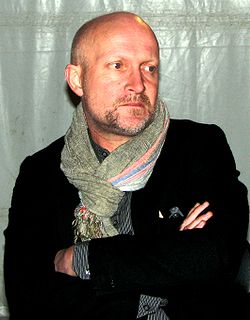
Lars Saabye Christensen, is a Norwegian/Danish author.

Georg Johannesen was a Norwegian author and professor at the University of Bergen.

Sigvatr Þórðarson or Sigvat the Skald (995-1045) was an Icelandic skald. He was a court poet to King Olaf II of Norway, as well as Canute the Great, Magnus the Good and Anund Jacob, by whose reigns his floruit can be dated to the earlier eleventh century. Sigvatr was the best known of the court skalds of King Olaf and also served as his marshal (stallare).

The Halldis Moren Vesaas Prize is a Norwegian literary prize which is awarded annually to a Norwegian for lyric or other poetry which through the quality and magnitude of the work has established a significant voice in Norwegian poetry.
Þórðr Sjáreksson was an 11th-century Icelandic skald. He composed a drápa on Þórólfr Skólmsson, four strophes of which have been preserved in the kings' sagas. He also composed a memorial drápa on the canonised Olaf II of Norway, called Róðadrápa, one strophe of which is preserved. A few disjoint strophes by Þórðr on different subjects are also preserved in Skáldskaparmál. Skáldatal reckons Þórðr among the court poets of both Óláfr Haraldsson and Eiríkr Hákonarson.
Emil Boyson was a Norwegian poet, author, and translator.
Paal-Helge Haugen is a Norwegian poet, novelist, dramatist and children's writer.
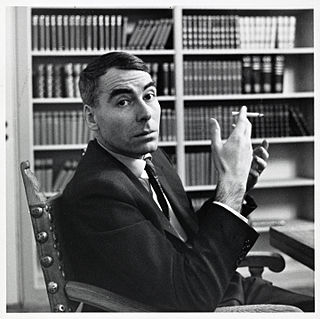
Paal Brekke was a Norwegian lyricist, novelist, translator of poetry, and literary critic. Brekke fled from occupied Norway to Sweden in 1940, when he was 17 years old. He made his literary debut in 1942, with the poetry collection Av din jord er vi til. His first novel was På flukt.
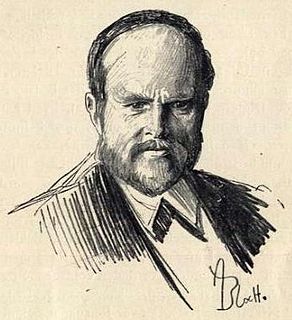
Jacob Breda Bull was a Norwegian author, journalist and editor.

Jan Jakob Tønseth was a Norwegian author, poet and translator.

The Separate Saga of St. Olaf(Olav den helliges saga) is one of the kings' sagas. It was written about King Olaf II of Norway, later Saint Olaf, patron saint of Norway.
Events in the year 1958 in Norway.
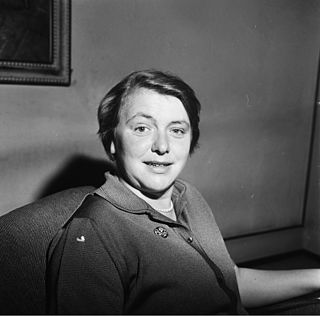
Gidske Anderson was a Norwegian journalist, editor and author.

Johannes Finne Brun was a Norwegian stage actor.

Det norske Theater is a former theatre in Bergen, Norway, and regarded as the first pure Norwegian stage theatre. It opened in 1850 by primus motor, violinist Ole Bull, and closed in 1863, after a bankruptcy. The theatre's first production was Holberg's comedy Den Vægelsindede, and the opening was on 2 January 1850. The theatre played at the old comedy house built in 1800.


